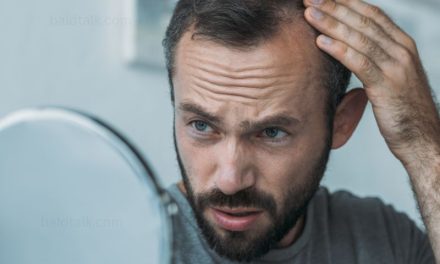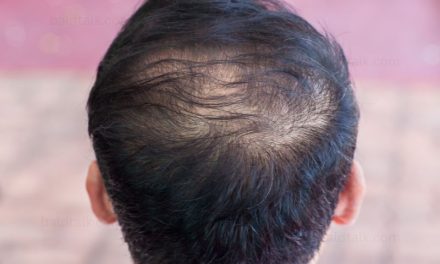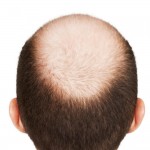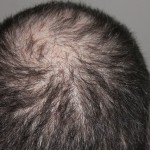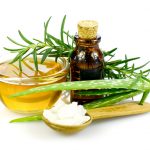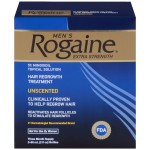Have you ever noticed more hair in your brush than usual? Are you worried that your diet might be the culprit? You’re not alone. Many people wonder if what they eat could be causing their hair loss. Let’s dive into the connection between nutritional deficiencies and hair health.
Introduction to Nutritional Deficiencies and Hair Loss
Hair loss can be distressing, but did you know that your diet plays a significant role in maintaining healthy hair? The foods we eat or don’t eat can directly impact the health of our hair. For instance, a deficiency in certain vitamins and minerals can lead to thinning hair or even significant hair loss.
Imagine this: you’re sitting at a café with a friend who’s struggling with hair loss. They tell you they’ve tried every shampoo and treatment, but nothing works. You ask about their diet, and they realize they might not be getting enough essential nutrients. This realization is the first step toward addressing the root cause of their hair issues.
It’s not just about vanity; healthy hair often reflects our overall health. So, what nutritional deficiencies should we be aware of to keep our locks luscious?
Types of Hair Loss Related to Nutritional Deficiencies
Hair loss can manifest in various ways, often linked to specific nutritional deficiencies. Let’s explore the common types:
Telogen Effluvium
Telogen effluvium is one of the most common forms of hair loss related to diet. This condition occurs when stress or nutritional deficiencies push hair follicles into the resting phase prematurely. People often notice significant hair shedding a few months after a stressful event or a period of poor nutrition.
Androgenic Alopecia
Also known as male or female pattern baldness, androgenic alopecia is influenced by genetics and hormones. However, poor nutrition can exacerbate this condition. For example, a lack of essential fatty acids and certain vitamins can speed up hair thinning.
Alopecia Areata
This autoimmune condition causes the immune system to attack hair follicles, leading to patchy hair loss. Nutritional factors, particularly deficiencies in vitamins and minerals like iron and zinc, can trigger or worsen this condition. Addressing these deficiencies might not cure alopecia areata but can help manage its severity.
Understanding these types of hair loss is crucial. It helps us identify what might be happening with our hair and take steps to address it through nutrition.
Healthy hair isn’t just about avoiding hair loss; it’s about nourishing your body. Ensuring you get the right nutrients can make all the difference. In the next part, we’ll delve into specific nutritional deficiencies that lead to hair loss and how you can correct them through diet and supplements.
Key Nutritional Deficiencies Leading to Hair Loss
Have you ever wondered why your hair is thinning despite using the best hair care products? Sometimes, the answer lies within—specifically, in what you are (or aren’t) putting into your body. Let’s explore the crucial nutritional deficiencies that might be causing your hair to shed.
Iron Deficiency
Iron is vital for producing hemoglobin, which carries oxygen to your hair follicles. Without enough iron, your hair follicles don’t get the oxygen they need to thrive, leading to hair loss. I’ve known people who were baffled by their thinning hair until they realized they were low on iron.
- Symptoms: Fatigue, weakness, pale skin, and hair loss.
- Sources: Red meat, spinach, lentils, and fortified cereals.
- Tip: Pair iron-rich foods with vitamin C to enhance absorption.
Zinc Deficiency
Zinc plays a critical role in hair tissue growth and repair. It also helps keep the oil glands around the follicles working correctly. A deficiency can lead to weakened hair structure, making it more prone to falling out.
- Symptoms: Hair thinning, scalp issues, and brittle nails.
- Sources: Meat, shellfish, legumes, and seeds.
- Tip: Avoid over-supplementation, as too much zinc can cause hair loss.
Protein and Amino Acid Deficiency
Hair is primarily made of protein, so it makes sense that a lack of protein in your diet can lead to hair loss. Essential amino acids are the building blocks of protein, and without them, your body can’t produce enough keratin, the protein that makes up hair.
- Symptoms: Weak, brittle hair, and increased hair shedding.
- Sources: Eggs, fish, dairy products, and soy.
- Tip: Ensure a balanced intake of all essential amino acids.
Essential Fatty Acid Deficiency
Essential fatty acids, particularly omega-3 and omega-6, are crucial for maintaining hair health. They help nourish hair follicles, promoting healthy hair growth.
- Symptoms: Dry, flaky scalp and brittle hair.
- Sources: Fish, flaxseeds, walnuts, and chia seeds.
- Tip: Include a variety of healthy fats in your diet to cover all your bases.
Vitamin Deficiencies
Various vitamins play a role in hair health. Let’s break down the most critical ones:
- Vitamin A
- Role: Promotes the production of sebum, which moisturizes the scalp.
- Sources: Carrots, sweet potatoes, and kale.
- Vitamin B
- Role: Essential for red blood cell production and hair follicle health.
- Sources: Whole grains, almonds, meat, and leafy greens.
- Vitamin C
- Role: Helps in collagen production and iron absorption.
- Sources: Oranges, strawberries, bell peppers, and guava.
- Vitamin D
- Role: Crucial for creating new hair follicles.
- Sources: Sunlight, fatty fish, and fortified foods.
- Vitamin E
- Role: Supports scalp health and provides antioxidant protection.
- Sources: Nuts, seeds, and spinach.

Understanding these key deficiencies is the first step to reclaiming your hair health. By incorporating the right nutrients into your diet, you can support your hair from the inside out. Next, we’ll discuss how to diagnose these deficiencies and the best treatment strategies to combat hair loss.
Diagnostic Approaches to Nutritional Deficiencies and Hair Loss
You’ve identified that nutritional deficiencies might be at the root of your hair loss. But how do you confirm it? Diagnosing these deficiencies involves a combination of clinical examination and laboratory tests. This step is crucial because it provides a clear picture of what your body lacks, allowing for targeted treatment.
Clinical Examination
A thorough clinical examination by a healthcare provider is the first step. They will look at your medical history, diet, and symptoms to identify potential deficiencies.
- Medical History: Discuss your overall health, any underlying conditions, and dietary habits.
- Physical Examination: Examine your hair, scalp, and skin for signs of deficiencies.
Laboratory Tests
If the clinical examination suggests a nutritional deficiency, the next step is to confirm it with laboratory tests. These tests can pinpoint specific deficiencies that might be causing your hair loss.
- Blood Tests: Check levels of vitamins, minerals, and other nutrients.
- Iron Levels: Serum ferritin and hemoglobin tests.
- Zinc Levels: Plasma or serum zinc tests.
- Vitamin Levels: Specific tests for vitamins A, B, C, D, and E.
- Hair Analysis: Although less common, this can sometimes reveal mineral deficiencies and toxic metal exposures.
Understanding your body’s nutritional status helps create a roadmap for effective treatment. Now, let’s move on to managing and treating these deficiencies to restore your hair health.
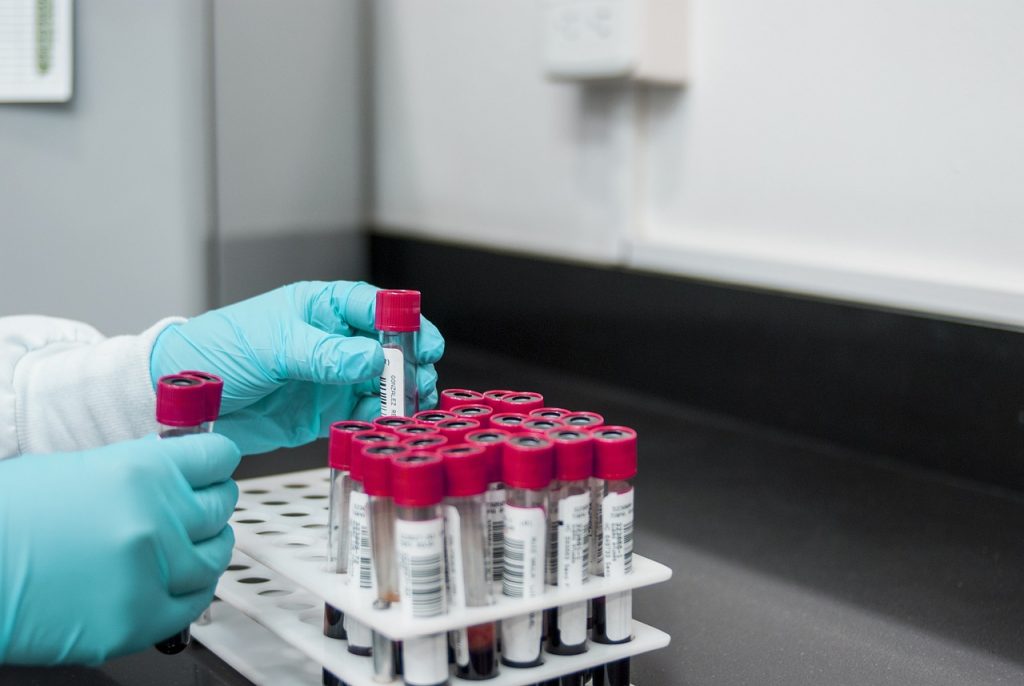
Management and Treatment Strategies
Addressing nutritional deficiencies involves a multi-faceted approach, combining dietary changes, supplements, and lifestyle modifications. Let’s explore these strategies in detail.
Dietary Interventions
Your diet plays a critical role in combating hair loss due to nutritional deficiencies. Incorporating nutrient-rich foods can make a significant difference.
- Balanced Diet: Ensure your meals include a variety of nutrients.
- Iron-rich foods: Red meat, leafy greens, lentils.
- Zinc-Rich Foods: Meat, shellfish, legumes.
- Protein Sources: Eggs, fish, dairy products.
- Healthy Fats: Fish, nuts, seeds.
Supplement Use
Sometimes, diet alone isn’t enough to correct severe deficiencies. This is where supplements come in.
- Iron Supplements: Essential for those with low iron levels. Pair with vitamin C for better absorption.
- Zinc Supplements: These are helpful for those not getting enough zinc through diet.
- Multivitamins: A good option if multiple deficiencies are suspected.
- Omega-3 Fatty Acids: For essential fatty acid deficiency.
It’s important to use supplements wisely. Over-supplementation can lead to other health issues, so always follow a healthcare provider’s guidance.
Lifestyle Modifications
Your lifestyle also impacts your hair health. Making small changes can yield significant results.
- Stress Management: High stress can exacerbate hair loss. Practices like yoga, meditation, and regular exercise can help.
- Healthy Sleep Patterns: Ensure you get 7-9 hours of quality sleep per night to support overall health.
- Avoid Smoking and Excessive Alcohol: Both can deplete essential nutrients and damage hair follicles.
By combining these strategies, you can address the root causes of hair loss and promote healthier hair growth.
Prevention of Hair Loss Through Nutrition
Preventing hair loss before it starts is ideal. A proactive approach to nutrition and health can keep your hair strong and vibrant.
Balanced Diet
Maintaining a balanced diet is the cornerstone of preventing nutritional deficiencies.
- Diverse Meals: Include a variety of fruits, vegetables, proteins, and whole grains.
- Hydration: Drink plenty of water to keep your scalp and hair hydrated.
- Regular Meals: Avoid skipping meals to ensure a steady intake of nutrients.
Regular Health Check-ups
Routine check-ups can catch deficiencies early, allowing you to address them before they impact your hair.
- Annual Blood Tests: Monitor levels of key nutrients like iron, zinc, and vitamins.
- Consultations with a Dietitian: Get personalized dietary advice based on your health needs.
Preventive measures are easier and more effective than dealing with hair loss after it occurs. In the next section, we’ll discuss the role of supplements in hair growth and health, wrapping up with some practical tips and common questions.
Role of Supplements in Hair Growth and Health
While a balanced diet is key to healthy hair, sometimes we need an extra boost. This is where supplements come into play. They can fill nutritional gaps, especially when dietary intake falls short.
Efficacy of Common Supplements
Supplements can be a game-changer for those experiencing hair loss due to nutritional deficiencies. However, it’s essential to choose wisely.
- Biotin (Vitamin B7): Widely known for its role in hair health. Biotin deficiency can lead to hair thinning and loss.
- Sources: Available in supplements, but also found in eggs, nuts, and seeds.
- Iron Supplements: Crucial for those with iron-deficiency anemia. Improves oxygen delivery to hair follicles.
- Pair with Vitamin C: Enhances iron absorption.
- Zinc: Vital for hair tissue growth and repair. Zinc supplements can help when dietary intake is insufficient.
- Moderation is Key: Excessive zinc can cause adverse effects.
- Omega-3 Fatty Acids: Supports scalp health and provides essential fats.
- Sources: Fish oil supplements or flaxseed oil.
Risks of Excessive Supplement Use
More isn’t always better. Over-supplementation can lead to toxicity and other health issues.
- Iron Overload: Can cause liver damage and other complications.
- Zinc Excess: This may interfere with copper absorption, leading to a deficiency.
- Vitamin Toxicity: High doses of fat-soluble vitamins (A, D, E, K) can accumulate in the body and cause harm.
Always consult with a healthcare provider before starting any new supplement regimen.
Conclusion
Nutritional deficiencies can significantly impact your hair health. By understanding these deficiencies and taking steps to address them through diet, supplements, and lifestyle changes, you can promote healthier hair growth. Prevention is always better, so maintaining a balanced diet and regular health check-ups is key.
Frequently Asked Questions (FAQs)
Can a lack of vitamins cause hair loss?
Yes, deficiencies in vitamins like A, B, C, D, and E can lead to hair loss. Each vitamin plays a specific role in maintaining hair health, from promoting cell growth to providing antioxidant protection.
Which vitamin deficiency causes hair fall?
Vitamin D deficiency is commonly linked to hair loss. It plays a crucial role in the hair growth cycle, and a lack can lead to thinning hair.
How do you treat hair loss due to nutritional deficiencies?
Treating hair loss involves addressing the root cause. This means improving your diet, taking necessary supplements, and making lifestyle changes to ensure you’re getting all essential nutrients.
What are the symptoms of iron deficiency in hair?
Iron deficiency can cause hair to become thin, brittle, and prone to shedding. Other symptoms include fatigue, pale skin, and weakness.
Can biotin help with hair loss?
Biotin, or Vitamin B7, is often recommended for hair health. While it can help improve hair strength and thickness, it’s most effective in individuals with a biotin deficiency.
© 2024 by Baldtalk.com. All rights reserved. No part of this document may be reproduced or transmitted in any form or by any means, electronic, mechanical, photocopying, recording, or otherwise, without prior written permission of Baldtalk.com.


